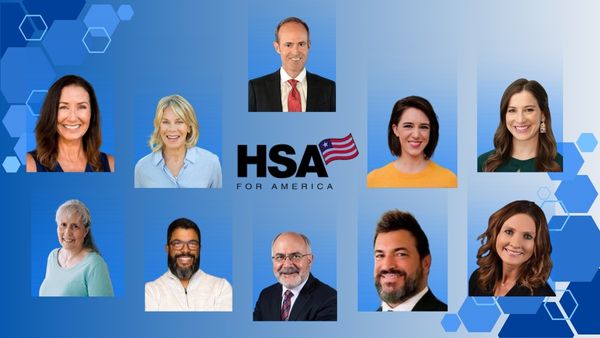Health Savings Accounts, or HSAs, make it easy to save tax-free money to use for health expenses. From over-the-counter medications to deductibles and premiums, HSAs are a valuable and flexible way to make your out-of-pocket expenses more manageable.
But HSAs also come with a specific set of rules, deadlines, and potential penalties. The most common HSA mistakes include depositing too much, withdrawing funds by mistake, and using your HSA funds for non-qualified expenses.
This short guide will explain how to get quickly back on track if you make one of these common HSA mistakes.

Common HSA Mistakes
Spending HSA money on anything else before you sign up for Medicare could lead to a 20-percent penalty on that withdrawal, but HSA mistakes can be resolved so you don’t get hit with a penalty. Here’s how:
The IRS allows you to correct “mistaken distributions.” You must have made the mistake due to a “reasonable cause” and have “clear and convincing” evidence to support that’s what happened. You have to return the money no later than April 15 following the year you knew about or should have realized the mistake. HSA mistakes like this can happen quite innocently.
Example 1: Jane, can now return that $100 to the HSA as the return of a mistaken distribution. She does not need to endorse the actual check she received and can instead deposit that money and write a personal check or otherwise make a deposit.
Example 2: Juan goes to a restaurant with his family and accidently pays the bill with his HSA debit card (it looks similar to his other cards and he was distracted by his daughter’s temper tantrum). He later discovers the mistake and can return the amount spent as the return of a mistaken distribution.
Compare Pricing on the Best HSA Plans Available
What to Do When You Mistakenly Withdraw Money from Your HSA [HSA Ineligible Expenses]
This happens all the time: Someone withdraws money from their HSA to pay for something, only to find out that it is not an HSA-qualified expense. For example, many people assume that health insurance premiums are HSA-eligible, which they are actually not.
If you withdrew too much from your HSA, you have until April 15th (tax day) to put it back. If you realize you’ve made a mistake and want to correct it, simply return the money to your HSA and you will avoid the additional penalty.
If you do not return the money to your HSA, it will be counted as taxable income, and even worse, you’ll have to pay a 20% penalty.
What to Do if you Deposit Too Much to Your HSA [How to Remove an Excess HSA Contribution]
Contributing too much to your HSA can lead to a tax penalty if you don’t take action. The IRS sets the limit for HSA contributions, and this limit changes every year.
In 2025, the HSA contribution limit is $4,300 ($4,400 in 2026) for individuals and $8,550 ($8,750 in 2026) for family coverage. Any individual who is 55 or older may contribute an additional $1,000 per year until they are 65.
Here are the steps you can take if you ever make an excess HSA contribution:
- Withdraw the excess from your account and handle it as taxable income for the year. This is perhaps the easiest way to deal with an excess contribution. However, it’s essential that you make the withdrawal before the due date of that year’s tax return. Remember: You must also withdraw any income earned on your excess contribution (dividends / interest)
- Reduce your contribution by the same amount the following year. If you don’t withdraw your excess contribution before the tax deadline, you will still have to pay a 6% excise tax for that year. But if you reduce your contribution the following year by the same amount, that excise tax will not be applied to subsequent years.
- Pay the 6% excise tax for as long as that money is in your account. This is what you would call the “wrong step”. Every year that your excess contribution is in your account, you will be forced to pay a 6% excise tax.
Do HSA Rollovers Count Against the Contribution Limit?
No, if you are rolling HSA funds over from one account into another, those funds do not count towards the contribution limit.Here are some additional blogs on the topic: Higher 2024 HSA Contribution Limits Allow You To Save Even More on Taxes | The Best Health Savings Account Administrators in 2023 | Turbocharge Your HSA: An Introduction to Self-Directed HSA Investing
Here are some additional pages related to this article: Healthshare Plans | The HSA Secure Plan

Wiley is President of HSA for America. He believes that consumers should have choice and price transparency, so they can make the best healthcare decisions for their needs. Read more about Wiley on his Bio page.


